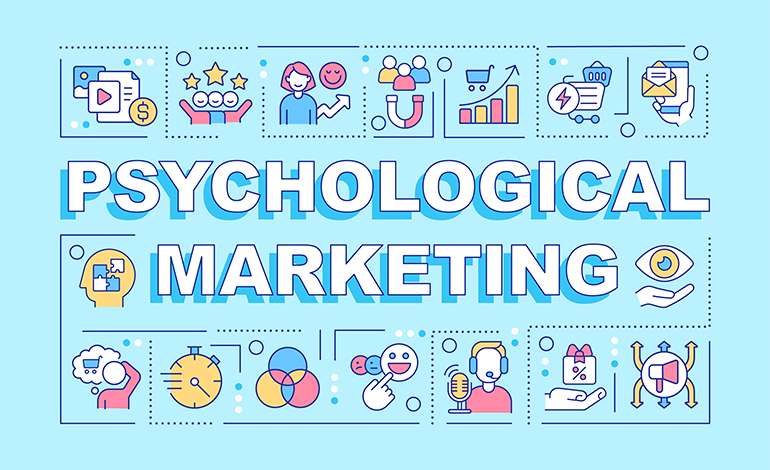What is psychological marketing?
Psychological marketing involves understanding human behavior, thoughts, and emotions, and utilizing this understanding to design marketing tactics or plans that resonate with consumers. The goal is to tap into what motivates people and leverage that insight to create marketing campaigns that prompt them to act.
In essence, psychological marketing prioritizes the human element in marketing by acknowledging the individuals behind the metrics and statistics.
Here are some psychological marketing tips:
1. Social proof: People are more likely to follow the crowd, so use testimonials, reviews, and ratings to show that others have already tried and liked your product or service.
2. Scarcity: The fear of missing out (FOMO) is a powerful motivator, so use limited-time offers, limited-edition products, and countdown timers to create a sense of urgency.
3. Anchoring: People tend to make decisions based on the first piece of information they receive, so use anchor prices to influence their perception of value. For example, if you’re selling a $200 product, start by saying that it’s “normally priced at $300” to make the $200 seem like a bargain.
4. Reciprocity: People are more likely to do something for you if you’ve done something for them first, so offer freebies, samples, or trials to create a sense of obligation.
5. Emotional appeal: People are more likely to make decisions based on emotions rather than logic, so use emotional appeals such as humor, nostalgia, or empathy to create a connection with your audience.
6. Personalization: People like to feel special and unique, so use personalization techniques such as addressing customers by their name, recommending products based on their past purchases, or tailoring your marketing messages to their interests and preferences.
7. Cognitive dissonance: People don’t like to feel inconsistent or contradictory, so use language that emphasizes the benefits and positive aspects of your product or service to minimize any potential negative aspects.
8. Authority: People are more likely to trust and follow the advice of experts or leaders in a particular field, so use endorsements, certifications, or expert opinions to establish your credibility and expertise.
9. Framing: People perceive information differently depending on how it’s presented, so use framing techniques such as highlighting the benefits rather than the features of your product, or framing your product as a solution to a problem rather than a commodity.
10. Visual cues: People process visual information more quickly and efficiently than text, so use eye-catching graphics, images, or videos to grab their attention and convey your message more effectively.
To sum up, psychological marketing aims to craft a compelling and persuasive marketing approach that strikes a chord with customers and prompts them to act. The focus is on identifying your intended audience’s fundamental drivers, wants, and aspirations and utilizing that information to develop marketing tactics that better accomplish your business objectives.
Essentially, psychological marketing strives to create a more impactful marketing experience that connects with customers on a deeper level and inspires them to take action.








